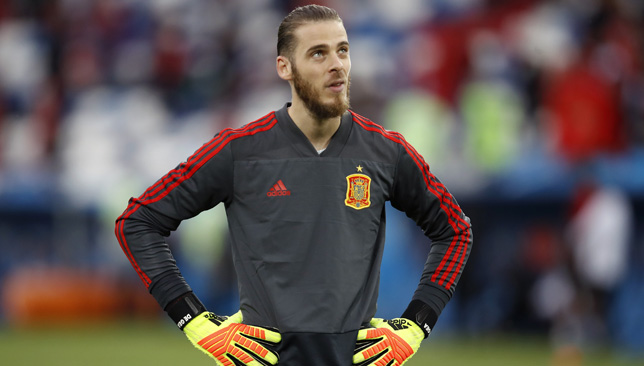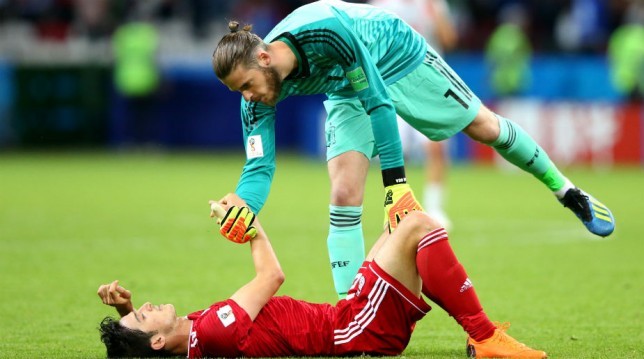
So, after all the drama and controversy, Spain are exactly where we expected them to be: through to the last 16 as group winners.
But don’t be fooled by that raw fact, because Monday night’s game against Morocco showed that this team is in trouble.
There are concerns throughout the team, including the identity of the starting striker after a series of hit or miss performances from Diego Costa and the question of how interim coach Fernando Hierro should configure his gloriously talented midfield.
But by far the biggest weakness so far has been the defence, with the five goals shipped in the group stages meaning there’s every chance that Spain will head into the next stage having conceded more goals than any other surviving team.
They have been conceding all sorts of goals, too: a penalty, a shot from the edge of the box, a direct free-kick, a breakaway from the halfway line, a header from a corner …you name it, Spain are vulnerable in every area.
And that all starts with the goalkeeper, David De Gea, whose place in the side is coming into serious question following another worrying performance against Morocco.
Some of the criticism of the Manchester United man currently being bandied around in Spain is unjustified: he could have done nothing, for example, about the brilliant header netted by Youssef En-Nesyri for Morocco – it was too far away for him to come off his line, and the header was planted right into the corner.
But it’s impossible to escape the underlying feeling that De Gea just does not look right, and does not transmit confidence to the rest of the team.
A couple of moments from the Morocco game capture that sentiment. Firstly, shortly before half-time Morocco striker Khalid Boutaib took advantage of Spain sleeping at a throw-in to race clear, one on one against the goalkeeper. De Gea actually made a save (his first of the tournament), but the manner in which he did it owed a lot to fortune as he stayed rooted to his line and needed a heavy touch from the striker to eventually stop the shot, still inside his six-yard box.

Later, near the end of the game, a cross into the box should have been meat and drink for the goalkeeper, but De Gea was slow to react and eventually had to take desperate measures, diving awkwardly to deflect the ball away with his forearm in an ugly-looking and unconventional manoeuvre.
Those two incidents summed up De Gea’s great weakness: he is extremely reluctant to come off his line, and when he does it generally leads to a heart-in-mouth moment.
Playing for Spain, this is a major problem. Unlike his club side, De Gea’s national team holds a high defensive line, pushing up the pitch to pin the opposition deep inside their own half. That leaves the goalkeeper with 40 yards of green space in front of him, requiring him to be comfortable and confident in that area.
De Gea cannot do that, and there, perhaps, lies the source of the unease which is flowing palpably throughout the Spanish defensive ranks.
So should he be dropped? In reality, probably not due to a lack of viable alternatives. The squad’s other goalkeepers are Athletic Bilbao’s Kepa Arrizabalaga, who only has one cap, and veteran Pepe Reina, who has played just one competitive international game in four years.
Introducing an unknown quantity would be a massive risk for Hierro – probably a greater risk than leaving in De Gea. But on current form, the keeper is looking like a disaster waiting to happen.